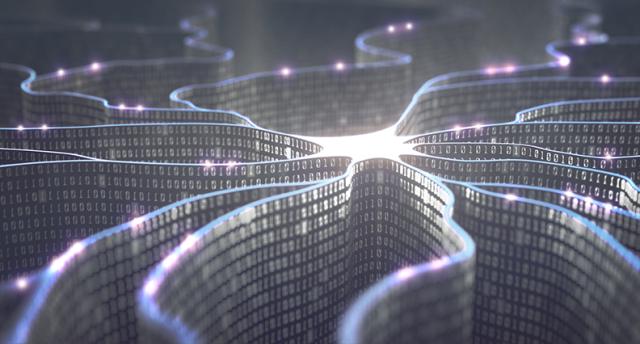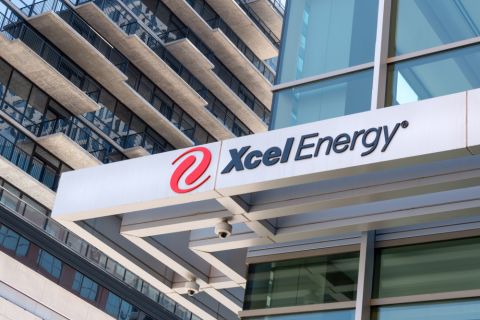
Artificial intelligence is finding ways in the oil and gas industry given the number of disruptive technologies that are shaping the future of industry, where operating companies are adopting solutions that uses artificial intelligence given the benefits they generate from such applications, mainly related to cost and safety.
During Abu Dhabi International Petroleum Exhibition and Conference (ADIPEC), service providers and technology developers unveiled a number of cutting-edge technology that harness artificial intelligence in the service of the industry, across the various steps of the oil and gas production.
During the event, Weatherford has introduced Vero, the automated connection integrity, which applies artificial intelligence to minimize safety risks and validate well integrity with absolute certainty, and increase efficiency as well as reducing cost.
“That’s a technology enabled by a couple of key pieces of our intellectual property for the running of tubulars in the well, both for casing, completion and tubing,” said Dean Bell, president of well construction for Weatherford.
The solution employs two new proprietary features: AutoMakeup technology, which precisely controls the makeup of tubular connections automatically, and AutoEvaluate software, which continually assesses torque against original equipment manufacturer specifications.
“These two technology bring automation and digitalization to an area that frankly as an industry we should be embarrassed of how we have been doing this as a collective group for decades. We have finally arrived to a new era we can do it a smart way through using artificial intelligence,” Bell said.
Bell said that the first part of the Vero solution is the AutoMakeup technology, which replaces what used to be hydraulic motor that would literally stop sharply once it reaches the torque value it needs to reach, and that meant that the user will have a lot of variant in the final connection torque, literally 20% acceptable torque by the original equipment manufacturer specification.
“That was only accepted by the industry because that all what the technology would enable. There was nothing better we can do,” Bell said. “But now, the AutoMakeup allows us to take very precise measurement, where every time torque increases, it starts to slow down and stop precisely at the right torque, and that 20% variant is now reduced to less than 2% variant, in the connection torque. That means no mistakes made in the connection.
“The system also measures and senses if there is a mistake while making up the connection, where it stops before it damages the connection,” he continued. “This save time and cost for our clients,” he said.
Speaking about the second part of the solution, which is the automated evaluation, Bell said that said that the computer looks at the data and take the decision. “This help eliminates the risk coming from the poor judgement of the human factor,” he said. "The world-first Vero solution is enabled by the most disruptive technology ever introduced in the tubular running space. By replacing the inherent flaws of human judgment with AutoMakeup and AutoEvaluate technologies, Vero goes beyond tubular running. We expect it to minimize the associated risks, both onshore and offshore, and help our customers to consistently and reliably build wells that last a lifetime."
Compared to the old solutions, Bell said Vero solution perform the job without mistake. “This also means prevent massive catastrophic failure,” Bell said. He also shared some case where the technology is being used to help clients and saved them millions of U.S. dollars in addition to precious time.
By applying artificial intelligence at every stage from pipe manufacturing to well installation, the Vero solution removes the uncertainty of human judgment from the connection process. In doing so, the solution can minimize the chance of catastrophic well failures associated with poorly made up connections, as well as significantly reduce the total cost of well ownership, minimize safety risks, and protect corporate reputation.
In an industry which is conservative and reluctant in embracing new technologies, Bell said oil and gas companies will adopt Vero easily. “Once they try and see the value proposition is so compelling, which has many aspects, customers will adopt it easily,” he said.
Bell also said that national oil companies in the Middle East are so excited about the new technology. “Some NOCs in this region are among our hungriest technology consumers. We run a job in Saudi Arabia using the technology, and the customer was extremely happy with the result,” he said.
Recommended Reading
Berntsen Joins Xcel as Executive VP, Chief Legal and Compliance Officer
2024-05-22 - Rob Berntsen is assuming the role from Amanda Rome, who had been in the position on an interim basis.
Wood Mackenzie Appoints Zhou as Head of Power, Renewables Business
2024-06-05 - Xizhou Zhou most recently led the global power and renewables division at S&P Global’s commodity insights business and the Asia Pacific gas, power and renewables business.
Bethancourt Appointed as Devon Energy’s Board Chair
2024-06-05 - John Bethancourt joined Devon Energy’s board in 2014 following his retirement from Chevron’s executive team.
TotalEnergies Buys UK Power Plant from EIG for $575MM
2024-06-06 - TotalEnergies signed an agreement with EIG, an institutional investor in the global energy sector, for the acquisition of all the shares of West Burton Energy for an enterprise value of £450 million (US$575 million).
ProPetro Adds Exxon Designee Volkov to Board
2024-05-14 - Alex Volkov is currently the transition executive tasked with planning the integration of Pioneer Natural Resources and Exxon Mobil.






